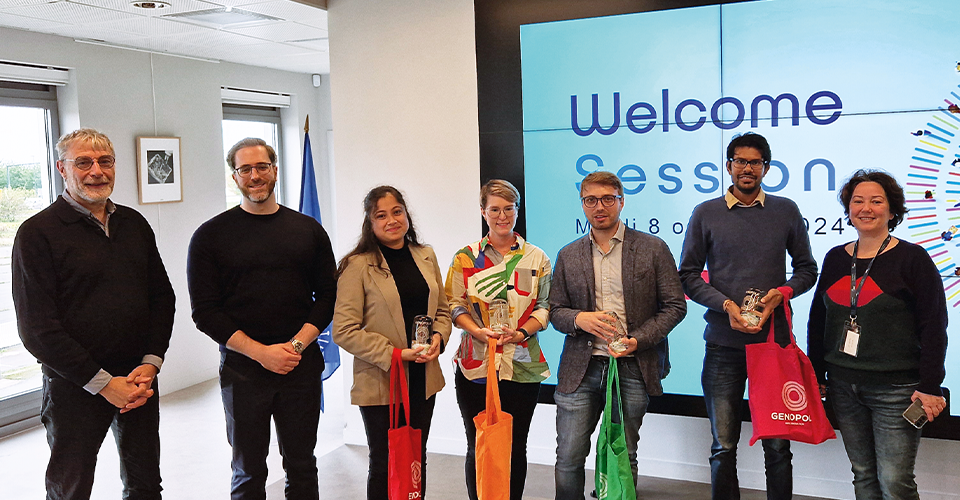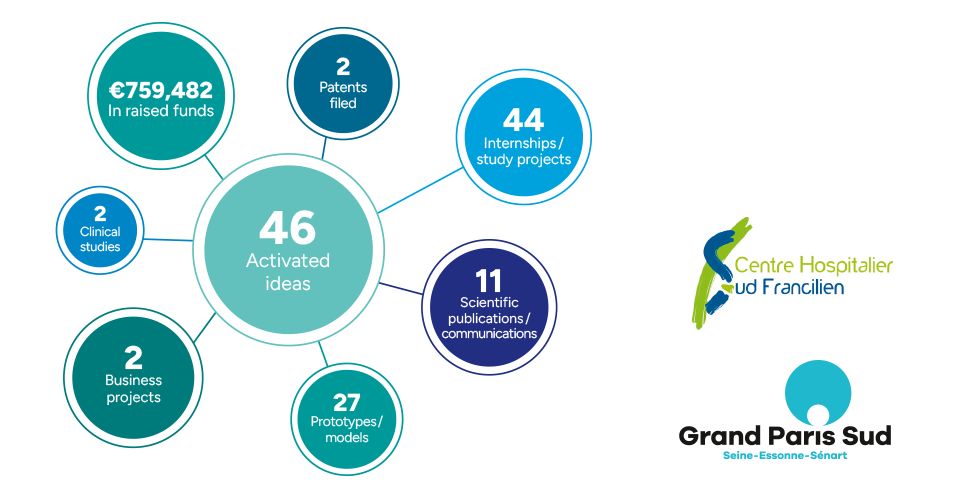Energize research
Atige: funding to accelerate innovation
The objective of the Genopole Thematic Actions Incentive, or Atige for short, is to help researchers create teams within a research unit already present at the biocluster. The program contributes to the emergence of tomorrow's leaders in science by giving tenured researchers the means to create their teams. The Atiges have a maximum duration of three years and are intended for researchers who already have a position within a public organism or are likely to attain one rapidly. Candidate projects must be coherent with Genopole's centers of interest: genomics and post-genomics, biotherapies, bioinformatics, biophysics, engineering sciences as applied to large-scale biological domains (transcriptomics, proteomics, metabolomics, systems biology, synthetic biology, etc.).
As a program for excellence, Atige grants play a key role in the development of new research teams and the emergence of disruptive research topics. The program enriches the biocluster with new scientific orientations in a lasting manner, since close to half of the beneficiaries have remained at the site or become team heads or unit directors. Indeed, since the program's launch in 2001, nine laureates have remained at their hosting laboratory and two have created new research units at Genopole. Moreover, there are six Atiges currently underway.
To create their new teams, Atige laureates receive three years of funding and hiring possibilities for technicians (fixed-term contracts), PhD students or postdocs. The four Atiges allocated over the last few years are strengthening health research at the biocluster, notably in innovative biotherapies, a sector supported by Genopole and of strategic interest for the Île-de-France Region.

Two laureates for the third ApogeeBio call for candidates
ApogeeBio is a program of accompaniment and European funding for postdoctoral projects. It is intended for young foreign or expatriate-French researchers.
ApogeeBio finances two years of postdoctoral research at Genopole in life, social or computer sciences pertinent to the healthcare or environmental sectors.
For the third edition of the call for candidates, which was finalized on 28 February 2024, allocations were attributed to two young postdocs, who will be hosted by the Genopole companies STH Biotech and Cell Environment.
Call for Innovative Ideas: building bridges between innovation in the hospital and research at Genopole
The biocluster and the Grand Paris Sud Urban Area (GPS) provide accompaniment to transform the innovative, care-improving ideas forwarded by nearby hospital personnel into full-on technological or scientific projects.
On 2 December 2024, five innovative projects to improve hospital care, including two in artificial intelligence (AI), were selected from the seventh edition of the Call for Innovative Ideas. Representing the South Île-de-France Medical Center, the Arpajon Hospital Center and the Coubert Rehabilitation Center, the call's laureates will receive funding support and accompaniment from Genopole to get their projects rolling. The principal topics of last year's call included the conception of digital tools (AI, immersive technologies, etc.) care provision improvements, therapeutic decision making and training.
46 newly-born ideas
The objective of the Call for Innovative Ideas is to favor innovation in the hospital setting and the emergence of Genopole-supported collaborative projects between the hospitals and the biocluster's research labs (informatics, genomics). These projects also involve such higher education institutes as ENSIIE (French Grande École for informatics in industry and business), Télécom SudParis, Icam and the University of Évry-Paris Saclay for internships and study projects. The initiative aims to harness synergies by enabling interdisciplinarity. It favors the development of innovative solutions to medical challenges and contributes to the dynamic of biomedical research at the biocluster.

The call has led to two genetic research projects (characterization of pathological or environmental mechanisms, research for biomarkers) and ten or so collaborative research projects between the CHSF and the IBISC, LBEPS and CNRGH labs. In parallel, internships or study projects have been done by around 50 students, mostly from the territory's engineering schools such as ICAM (Paris Sénart site) Télécom SudParis and ENSIIE.
More than 60 hospital and paramedical personnel representing more than 20 medical specialties have already responded to the Call for Innovative Ideas, which, moreover, gives researchers an opportunity to participate in projects at the interface of clinical research and patient care.
A winning trio: funding, accompaniment and networking
In concrete terms, the territory's hospital personnel submit original ideas for products, processes or services aimed at resolving real-practice problems, and Genopole accompanies them to transform their ideas into research projects then real-practice solutions. Laureates of the Call for Innovative Ideas can benefit from up to €10,000 in seed funding cofinanced by Genopole and Grand Paris Sud. Another advantage is the personalized accompaniment provided by GIP Genopole (assistance for finding scientific, technological and industrial partners at the biocluster, support for roadmapping, identification of service providers, etc.). Finally, the hospital practitioner or paramedics have a chance to establish a partnership with a lab, a business or an engineering school.
